
Oran: The Radiant Jewel of Algeria's Mediterranean Coast
Oran, a vibrant city on Algeria's northwest coast, is a captivating blend of history, culture, and natural beauty. Known for its rich musical heritage, Oran is the birthplace of Rai music, a genre that has taken the world by storm with its soulful and rhythmic beats. The city’s lively atmosphere is a testament to its dynamic spirit, making it a must-visit destination for those seeking an authentic Algerian experience. Stroll through the bustling streets of Oran and you'll be greeted by a fascinating mix of French colonial architecture and traditional Algerian designs. The city's historic landmarks, such as the Santa Cruz Fort and the Great Mosque, offer a glimpse into Oran's storied past. For a taste of local life, visit the vibrant markets where you can indulge in delicious street food and shop for unique handmade crafts. Oran's beautiful Mediterranean coastline is perfect for relaxation and adventure. The pristine beaches and crystal-clear waters provide a stunning backdrop for sunbathing, swimming, and water sports. For a more tranquil experience, head to the nearby Ain El Turk, a charming seaside resort known for its serene beaches and lush surroundings. Whether you're a history buff, a music lover, or simply in search of a picturesque escape, Oran has something to offer everyone. Its welcoming locals and diverse attractions ensure that your visit will be filled with unforgettable memories.
Local tips in Oran
- Visit the Santa Cruz Fort for panoramic views of the city and the Mediterranean Sea.
- Explore the local markets early in the morning to avoid the crowds and get the freshest produce.
- If you love music, don't miss a live Rai music performance in one of Oran's many local venues.
- Use public transportation or taxis to navigate the city, as parking can be challenging in busy areas.
- Try the local dish 'chorba' – a delicious traditional soup that's a favorite among the locals.
Neighbourhoods in Oran
Oran: The Radiant Jewel of Algeria's Mediterranean Coast
Oran, a vibrant city on Algeria's northwest coast, is a captivating blend of history, culture, and natural beauty. Known for its rich musical heritage, Oran is the birthplace of Rai music, a genre that has taken the world by storm with its soulful and rhythmic beats. The city’s lively atmosphere is a testament to its dynamic spirit, making it a must-visit destination for those seeking an authentic Algerian experience. Stroll through the bustling streets of Oran and you'll be greeted by a fascinating mix of French colonial architecture and traditional Algerian designs. The city's historic landmarks, such as the Santa Cruz Fort and the Great Mosque, offer a glimpse into Oran's storied past. For a taste of local life, visit the vibrant markets where you can indulge in delicious street food and shop for unique handmade crafts. Oran's beautiful Mediterranean coastline is perfect for relaxation and adventure. The pristine beaches and crystal-clear waters provide a stunning backdrop for sunbathing, swimming, and water sports. For a more tranquil experience, head to the nearby Ain El Turk, a charming seaside resort known for its serene beaches and lush surroundings. Whether you're a history buff, a music lover, or simply in search of a picturesque escape, Oran has something to offer everyone. Its welcoming locals and diverse attractions ensure that your visit will be filled with unforgettable memories.
When is the best time to go to Oran?
Iconic landmarks you can’t miss
Fort of Santa Cruz
Explore the historic Fort of Santa Cruz in Oran, offering panoramic views and a glimpse into Algeria's rich past. A must-see landmark!
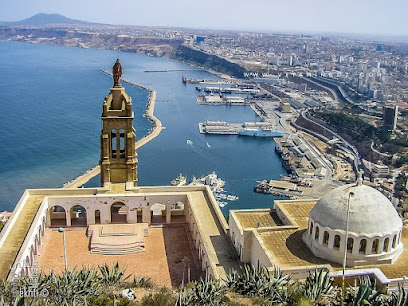
Oran sea front
Experience the radiant charm of Oran along its Mediterranean Sea Front, a vibrant promenade with stunning views, culture, and cuisine.
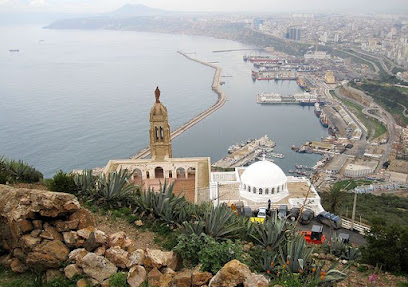
Dream paradise park Oran
Experience thrilling rides, live entertainment, and delicious food at Oran's premier amusement park, a perfect escape for families and thrill-seekers.
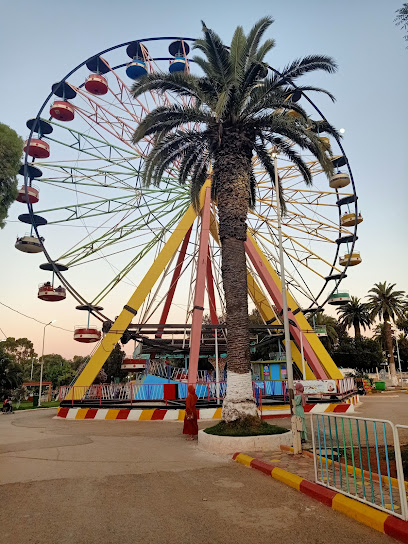
Canastel Forest
Discover Oran's natural haven: hiking trails, picnic spots, and serene beauty await in Canastel Forest, a green escape for all nature lovers.
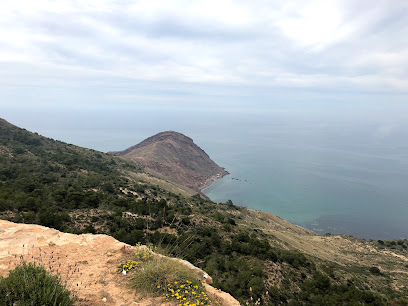
Bey's Palace
Explore Bey's Palace in Oran, a historic landmark showcasing Ottoman and Moorish architecture, reflecting Algeria's rich cultural heritage.
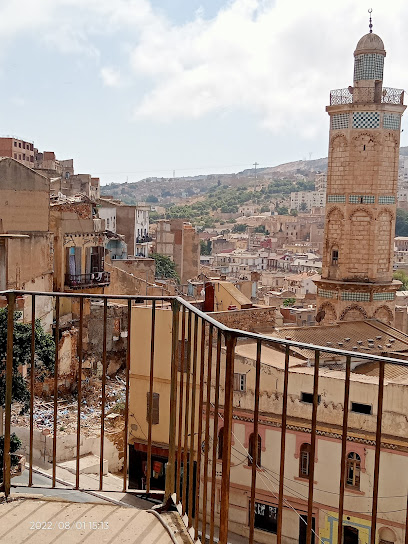
Ahmed Zabana National Museum
Explore the history and culture of Oran and western Algeria at the Ahmed Zabana National Museum. A journey through time awaits!
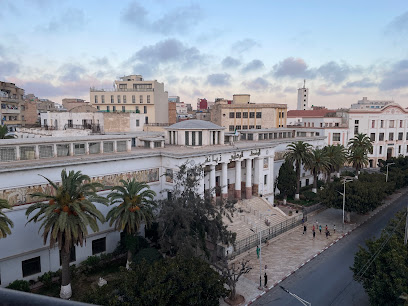
Oran Arena
Explore the historical Oran Arena, a cultural landmark showcasing Oran's Moorish and Spanish heritage through architecture and vibrant events.
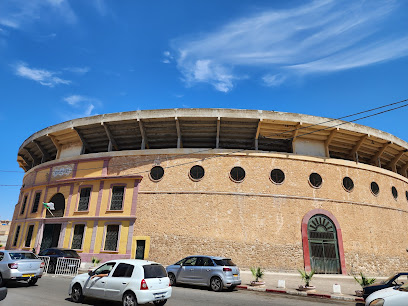
Abdullah Bin Salem Mosque
Explore Oran's Abdullah Bin Salem Mosque: a historic landmark blending Jewish and Islamic heritage in stunning architecture.
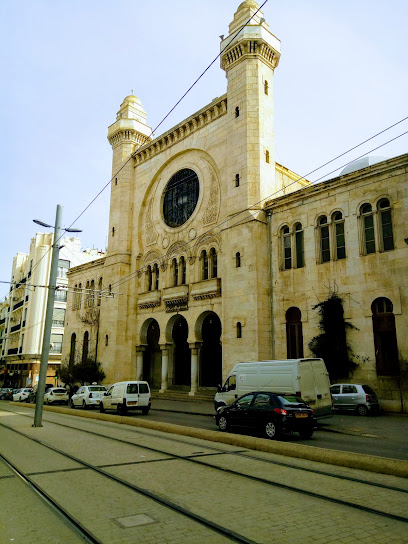
Pacha Mosque
Discover the architectural beauty and historical significance of Oran's Pacha Mosque, a landmark of Ottoman influence and Islamic heritage.
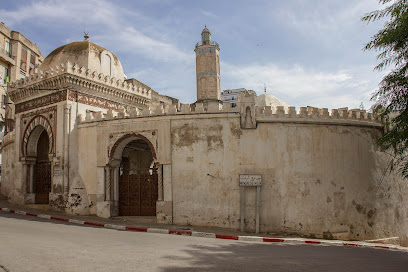
Place du 1er Novembre
Experience the vibrant heart of Oran at Place du 1er Novembre, surrounded by historical landmarks and lively local culture.
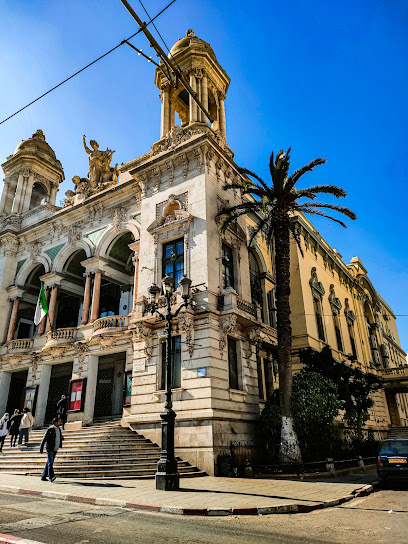
The Town Hall Place d'Armes
Discover Oran's iconic Town Hall at Place d'Armes: a neoclassical masterpiece and cultural hub steeped in history and vibrant local life.
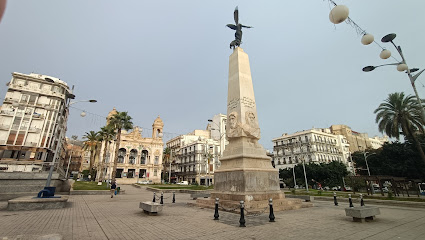
Port d'Oran
Discover Port d'Oran: a historic Mediterranean seaport in Algeria, blending rich history with vibrant maritime culture and stunning coastal views.
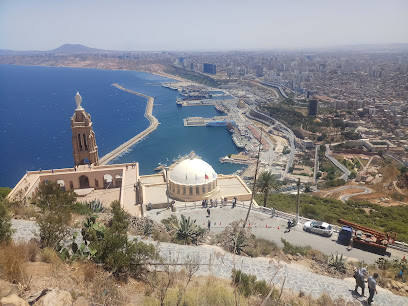
Cathedral of the Sacred Heart of Oran
Discover Oran's architectural gem, the Cathedral of the Sacred Heart, a former church turned library, blending history and culture.
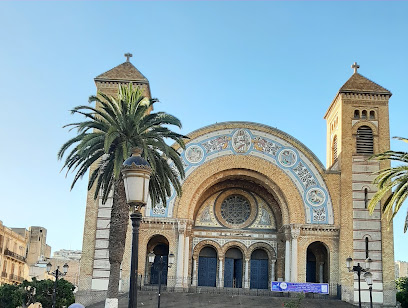
Salle d'exposition des photos de martyrs de la révolution
Explore the Salle d'exposition des photos de martyrs de la révolution in Oran, a heartfelt tribute to Algeria's brave martyrs of the revolution.
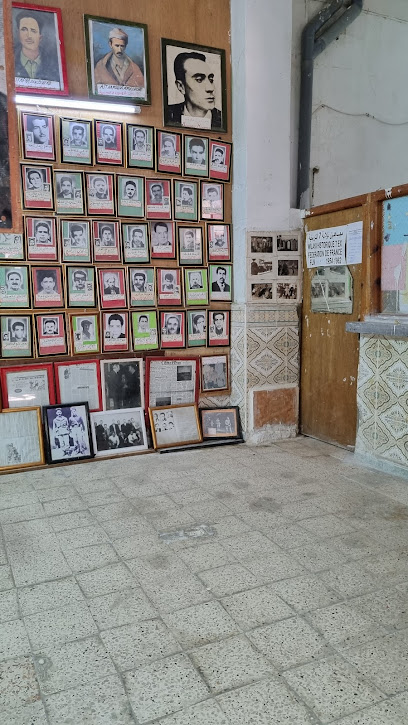
Porte du Santon
Explore the historic Porte du Santon in Oran, a Spanish-built gate offering a glimpse into Algeria's rich architectural and cultural heritage.
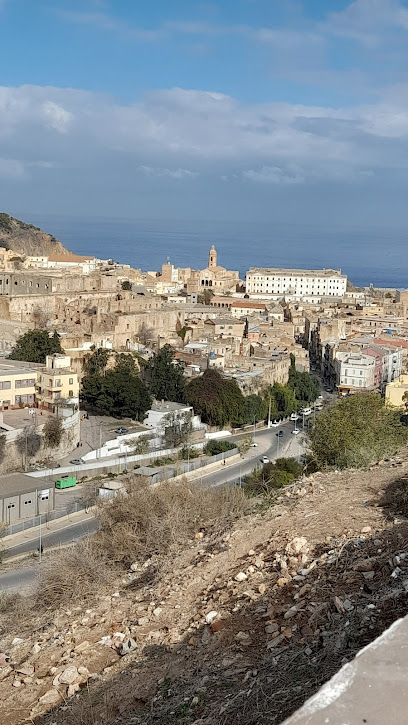
Unmissable attractions to see
Fort of Santa Cruz
Explore the historic Fort of Santa Cruz in Oran, offering stunning panoramic views and a glimpse into Algeria's rich colonial past.
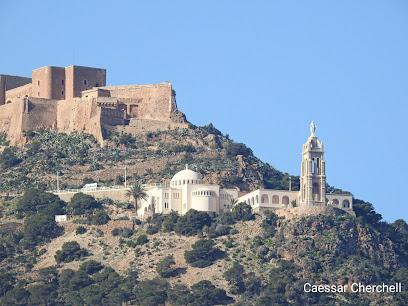
Dream paradise park Oran
Experience thrilling rides and joyful moments at Oran's Dream Paradise Park, the perfect family getaway for fun and adventure!
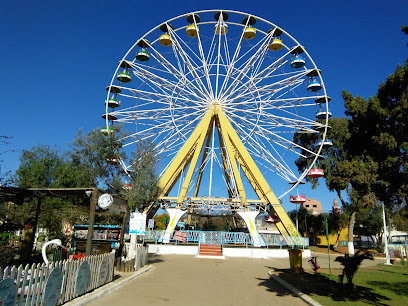
Cool Park
Experience tranquility and family fun at Cool Park in Bir El Djir, a perfect escape with green spaces, playgrounds, and cultural events.
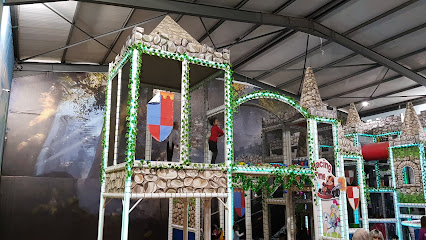
Oran Zoo
Discover diverse wildlife in a relaxed, family-friendly setting at Oran Zoo, a delightful escape in the heart of Oran, Algeria.
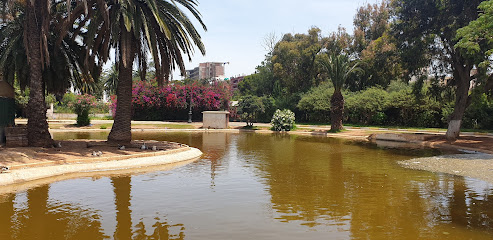
Canastel Forest
Escape to Canastel Forest: Oran's serene national forest offering hiking, picnics, and breathtaking views of the city and coastline.
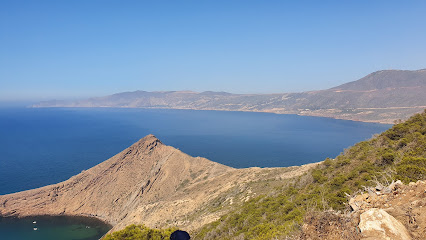
Ahmed Zabana National Museum
Explore Algeria's history, art, and natural wonders at Oran's Ahmed Zabana National Museum, a tribute to national hero Ahmed Zabana.
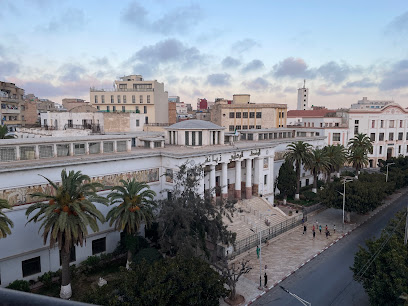
Kiddy Garden
Oran's top indoor amusement park for kids 1-12! Labyrinths, trampolines, video games & more await in a safe, fun-filled environment. Open daily!
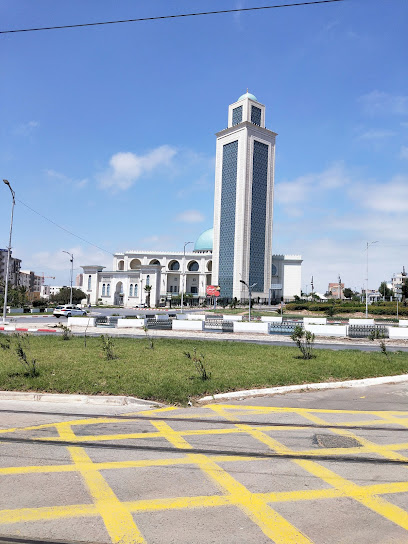
Mediterranean Garden
Discover a serene escape in Oran's Mediterranean Garden, a vibrant oasis of regional flora and tranquil landscapes.
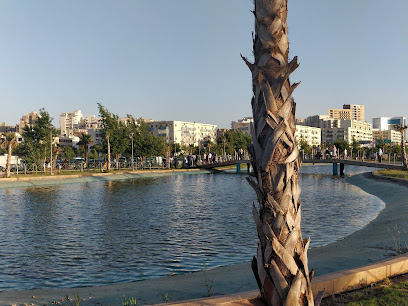
Pacha Mosque
Discover Oran's Pacha Mosque: A historical landmark blending Ottoman and Moorish architecture, offering a serene cultural experience.
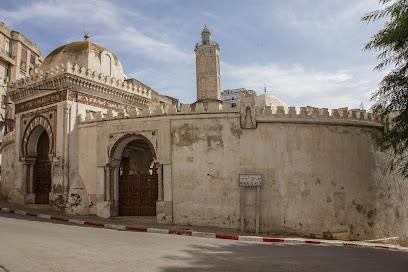
Sidi M'hamed garden
Escape to the serene beauty of Sidi M'hamed Garden in Oran, a lush oasis offering relaxation and a vibrant atmosphere for all ages.
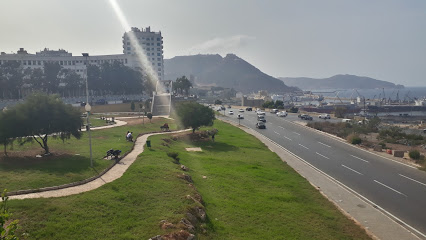
Cathedral of the Sacred Heart of Oran
Discover Oran's architectural gem: a former cathedral blending Roman, Byzantine, and Art Deco styles, now a public library and cultural landmark.
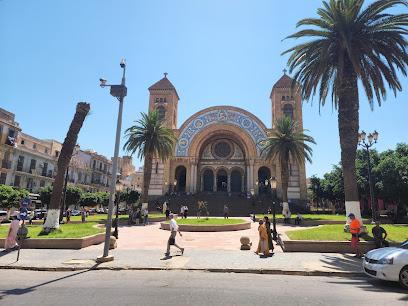
Porte du Santon
Explore the historic Porte du Santon in Oran, a Spanish-built gate offering a glimpse into Algeria's colonial past and architectural heritage.
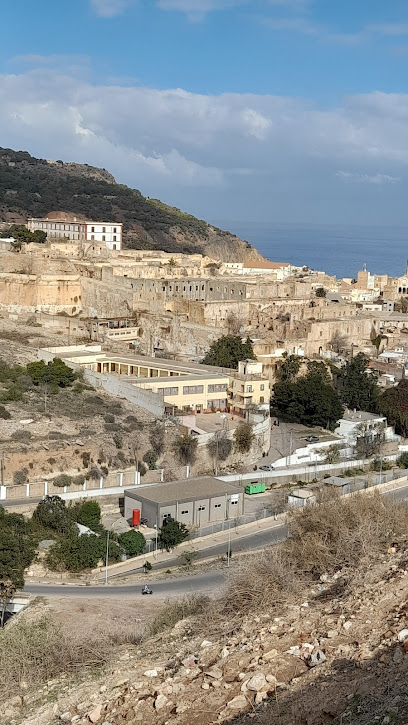
Place Jeanne d'Arc
Discover Place Jeanne d'Arc in Oran: A vibrant square where history, culture, and local life converge to create an unforgettable Algerian experience.
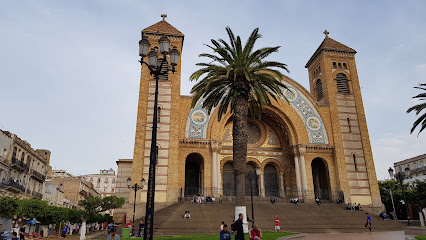
Les Falaises De Canastel
Discover dramatic cliffs, panoramic views, and a tranquil escape at Oran's must-see natural attraction, Les Falaises De Canastel.
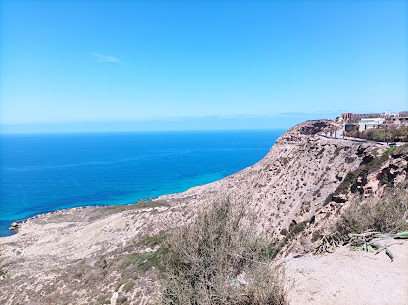
Palais de la culture et des arts
Discover Oran's vibrant arts scene at the Palais de la Culture, a historic landmark hosting diverse cultural events and exhibitions.
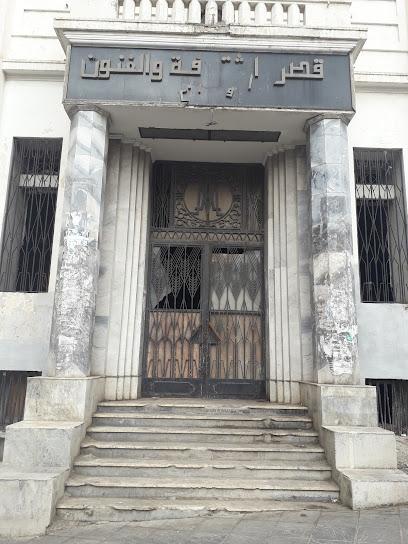
Essential places to dine
Bollywood Restaurant
Experience authentic Indian cuisine at Bollywood Restaurant in Oran - where vibrant flavors and warm hospitality meet.
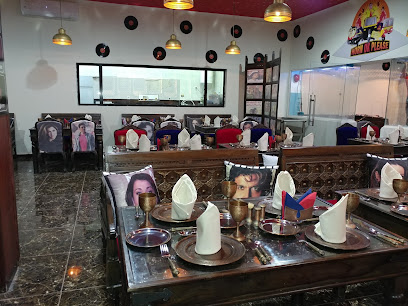
Arabesque Restaurant
Experience authentic Algerian flavors at Arabesque Restaurant in Oran - where family-friendly dining meets culinary excellence.
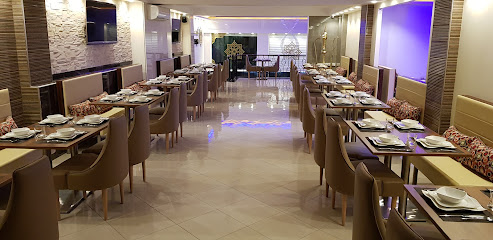
Restaurant PRALIN Illusion
Savor the best pizzas and family-friendly dining at Restaurant PRALIN Illusion in Oran - a culinary gem worth discovering.
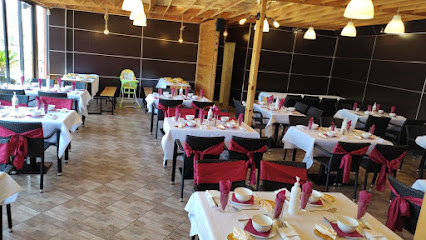
Bekhchi Restaurant
Experience authentic Algerian cuisine at Bekhchi Restaurant in Oran - where every meal tells a story.
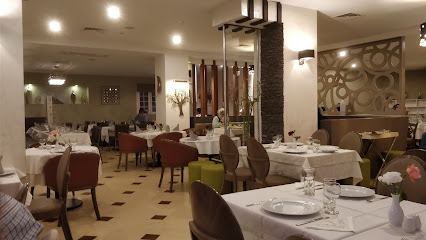
Maharaja Indian Restaurant, Courbet,Oran
Savor the authentic taste of India at Maharaja Indian Restaurant in Oran - where every meal is a celebration of flavor.
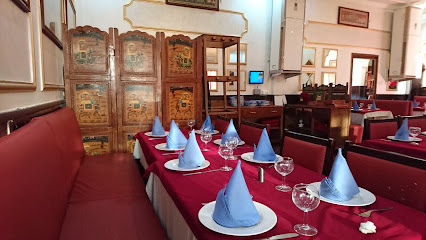
El Firdaous
Discover El Firdaous in Oran: A delightful fusion of Algerian tradition and Mediterranean flavors awaits you.
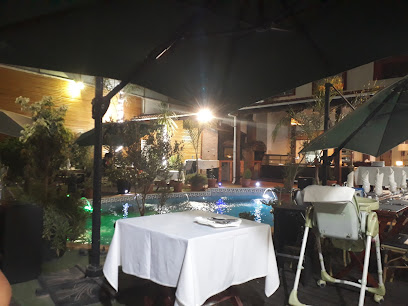
The Mexican - Mexican Food
Experience authentic Mexican flavors at The Mexican Restaurant in Oran - where every bite takes you on a culinary journey.
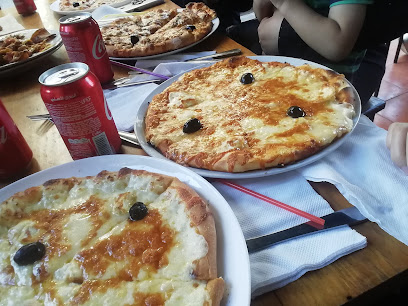
Resturant Bab El Hara
Discover authentic Algerian flavors at Restaurant Bab El Hara in Oran, where every meal is a celebration of local culinary traditions.
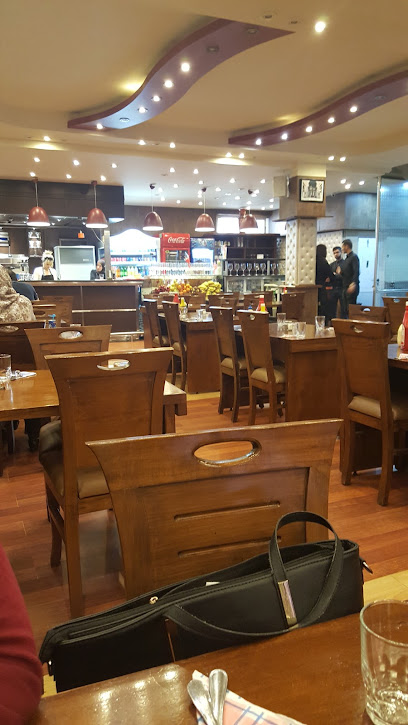
111 Restaurant - Pizzeria et restaurant
Experience authentic Italian flavors at 111 Restaurant - Pizzeria et Restaurant in Oran; where delicious pizza meets warm hospitality.
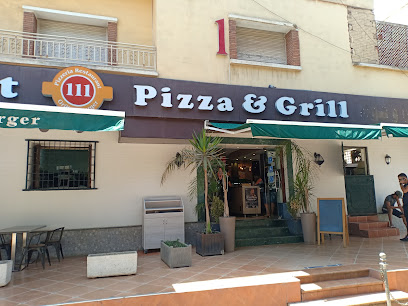
Ambiance Villa
Experience authentic Algerian cuisine at Ambiance Villa in Oran – where every meal tells a story.
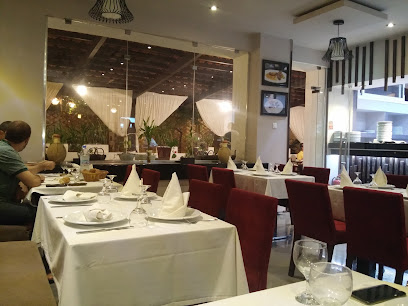
Central Perk Oran
Experience authentic Algerian cuisine at Central Perk Oran, where every meal is crafted with care in a welcoming atmosphere.
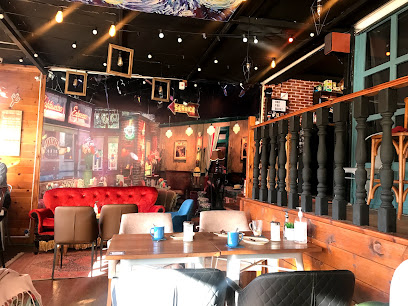
مطعم الباي
Explore the flavors of Algeria at مطعم الباي in Oran – where tradition meets modern culinary art.
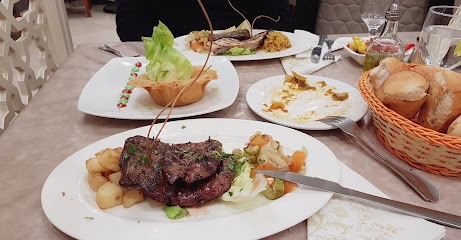
Café Lebanon
Experience authentic Lebanese cuisine at Café Lebanon in Oran - where flavor meets hospitality in every dish.
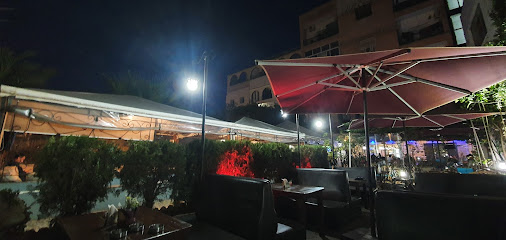
Le Cintra
Discover authentic Algerian cuisine at Le Cintra, Oran's premier restaurant offering fresh local flavors in a vibrant setting.
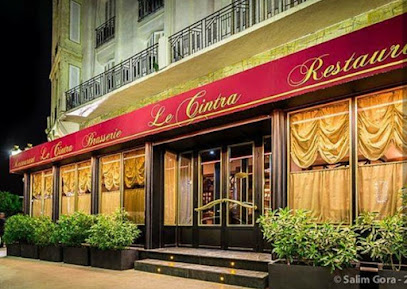
L'Olivier
Discover exquisite Mediterranean cuisine at L'Olivier in Oran – where every meal is a celebration of flavor.
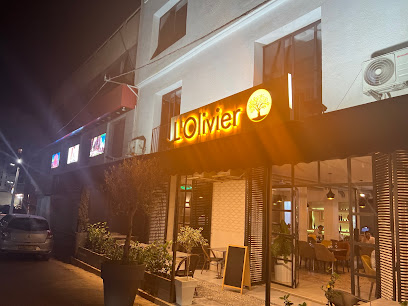
Markets, malls and hidden boutiques
Oran Grand
Discover the lively Oran Grand Shopping Mall, a premier destination for shopping, dining, and entertainment in the heart of Algeria's coastal city.
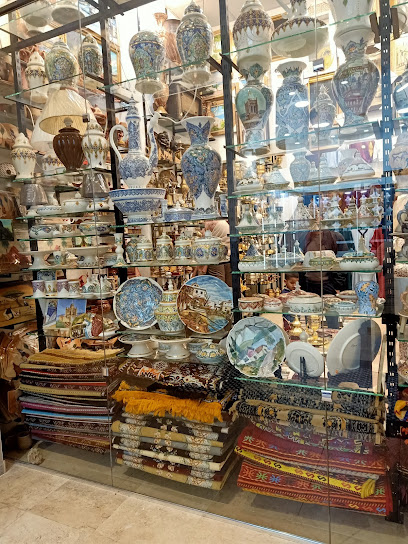
Pritop
Discover unique fashion pieces at Pritop in Oran, where local craftsmanship meets modern style in a welcoming shopping environment.
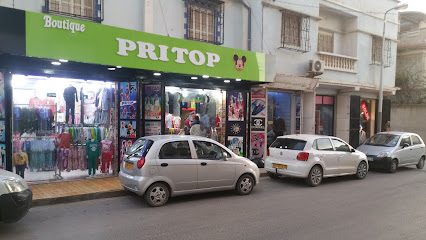
Boutique R&R
Discover unique women's fashion at Boutique R&R in Oran, where style meets elegance in every piece.
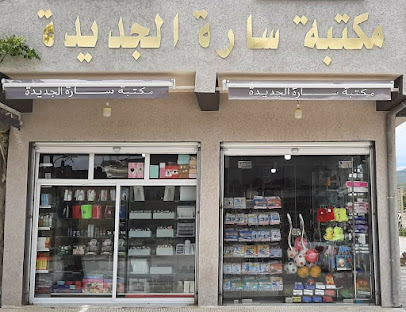
متجر نايكي
Explore the Nike Store in Oran for top-notch athletic wear and stylish footwear, perfectly blending fashion and function for all your adventures.
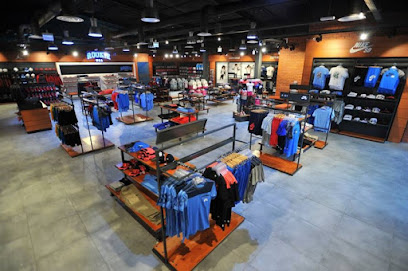
Boutique ELENA
Discover Boutique ELENA in Oran, a premier shoe store offering stylish footwear for every taste and occasion amidst the vibrant culture of Algeria.
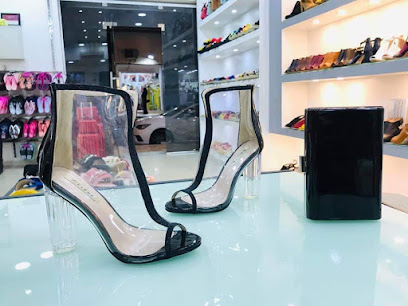
Shop'in Mall Oran
Discover the vibrant shopping scene at Shop'in Mall Oran, where local charm meets international brands in a delightful retail experience.
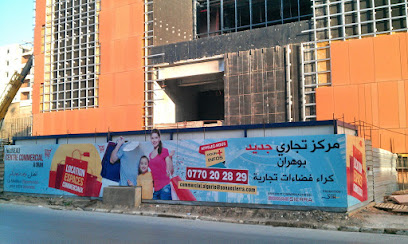
Djow Luxury
Explore the chic offerings of Djow Luxury in Oran, where high-quality fashion meets exceptional service in a vibrant shopping environment.
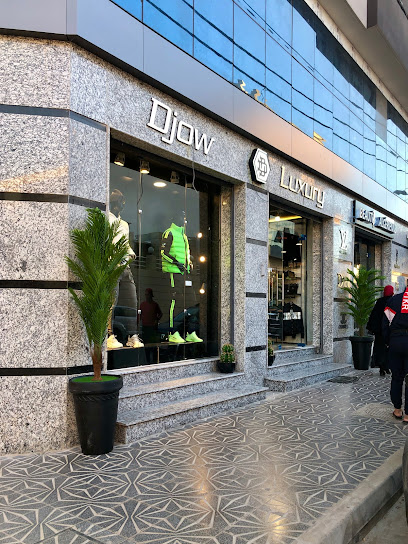
Hirfa concept store
Explore Hirfa Concept Store in Oran for unique handcrafted gifts and cultural treasures reflecting local artistry and heritage.
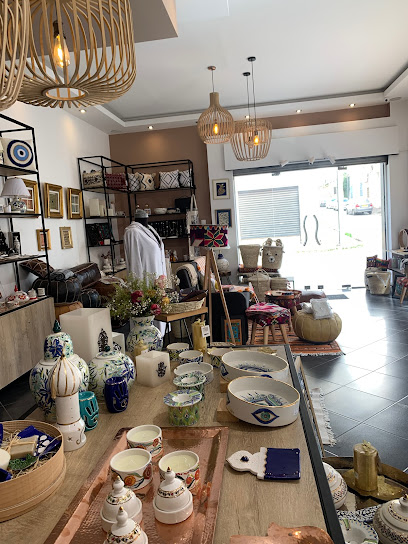
Mon style 31
Discover unique Algerian crafts and souvenirs at Mon Style 31, a charming gift shop in Bir El Djir, Oran, offering a local shopping experience.
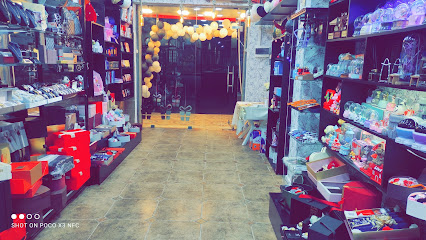
ORANshop
Explore ORANshop in Oran for an authentic shopping experience featuring a blend of modern and traditional Algerian clothing.

Alouach Shop Oran
Explore Alouach Shop in Oran for a unique blend of contemporary and traditional women's fashion that captures the essence of Algerian style.
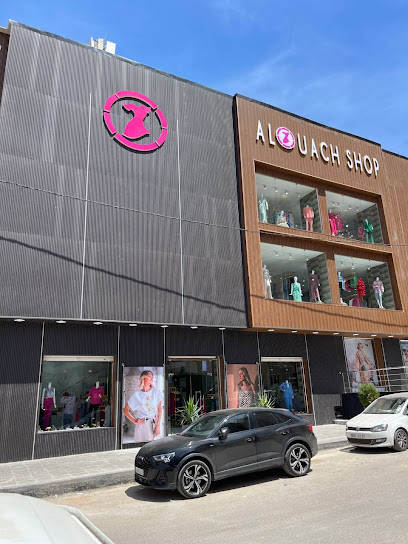
Mina Déco
Explore Mina Déco in Oran for unique handcrafted gifts that embody the rich culture and artistry of Algeria.
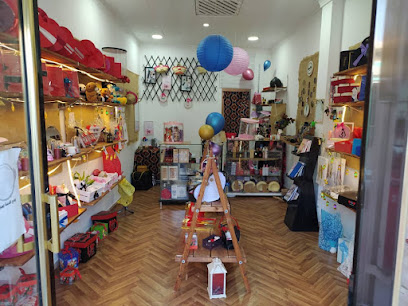
Boutique Torino Luxury
Discover exquisite fashion at Boutique Torino Luxury, Oran's premier clothing store offering unique styles and exceptional service.
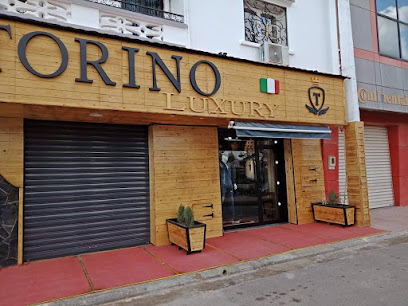
Maya Boutique oran
Explore Maya Boutique in Oran for the latest women's fashion trends and a unique shopping experience in Algeria's vibrant culture.

LA GRIFFE
Explore La Griffe in Oran: A vibrant gift shop filled with unique souvenirs, electronics, and accessories celebrating the essence of Algeria.
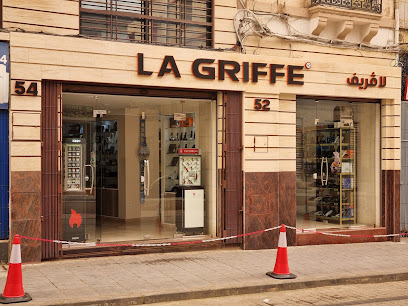
Essential bars & hidden hideouts
Restaurant PRALIN Illusion
Discover the culinary delights of Restaurant PRALIN Illusion in Oran, where family-friendly dining meets delicious pizza in a warm atmosphere.
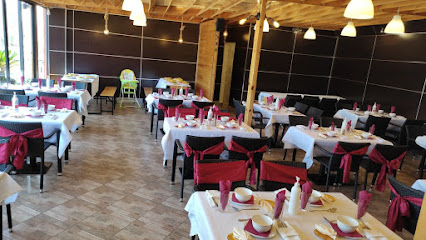
Ambiance Villa
Discover the culinary delights of Ambiance Villa, a top-rated restaurant in Oran offering a unique blend of local and international cuisine.
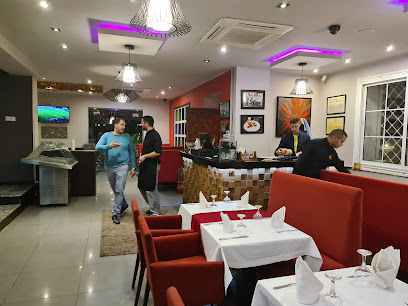
Central Perk Oran
Discover the cozy charm of Central Perk Oran, where delicious food and a warm atmosphere create the perfect cafe experience in the heart of Algeria.
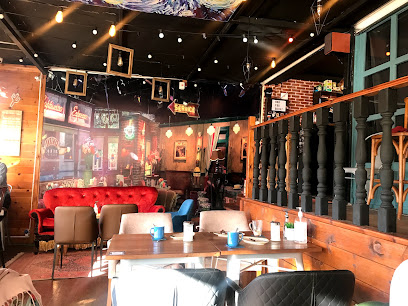
Le Cintra
Experience the best of Algerian and international cuisine at Le Cintra, Oran's culinary treasure with a warm ambiance.
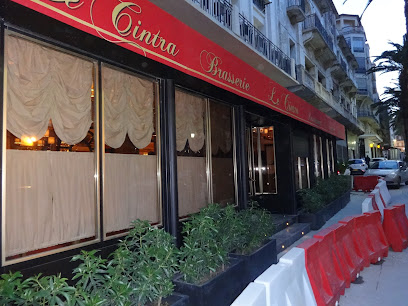
Fruitella - ORAN
Experience the burst of tropical flavors at Fruitella, the premier juice shop in Bir El Djir, Oran.
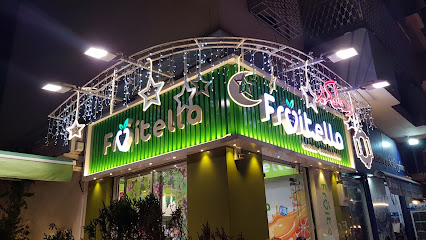
Le QG lounge Oran
Discover the warmth of Algerian hospitality at Le QG Lounge, a charming tea house in Bir El Djir, Oran, where exquisite teas meet a cozy atmosphere.
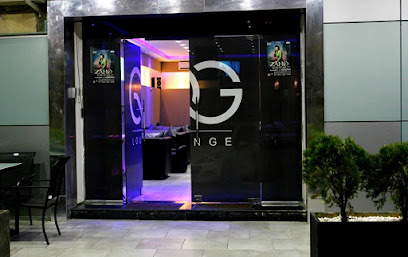
مطعم الأهرام
Explore the rich flavors of Algeria at مطعم الأهرام, where every meal is a celebration of local culinary traditions in Oran.
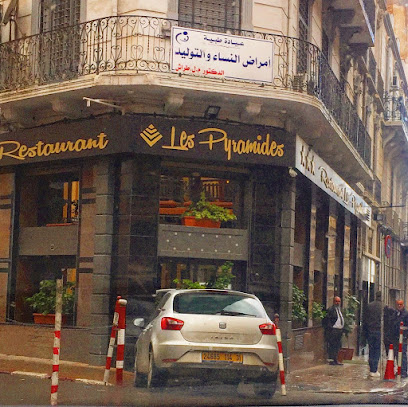
Las Palmas
Experience the rich flavors of Algeria at Las Palmas, a vibrant restaurant in Oran offering a delightful mix of local and contemporary dishes.
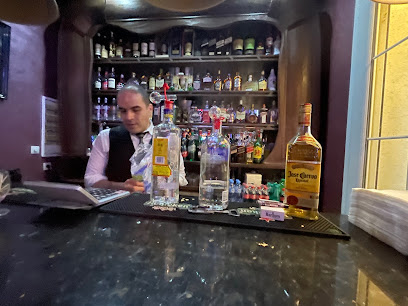
Mélo
Discover the flavors of Algeria at Mélo, a vibrant restaurant in Oran offering a delightful culinary experience with traditional dishes and warm service.
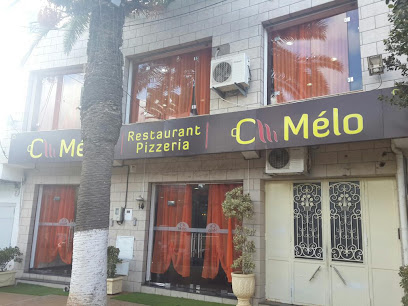
Le modjo lounge
Discover the flavors of Algeria at Le Modjo Lounge, where delightful dishes and a cozy atmosphere create an unforgettable dining experience.
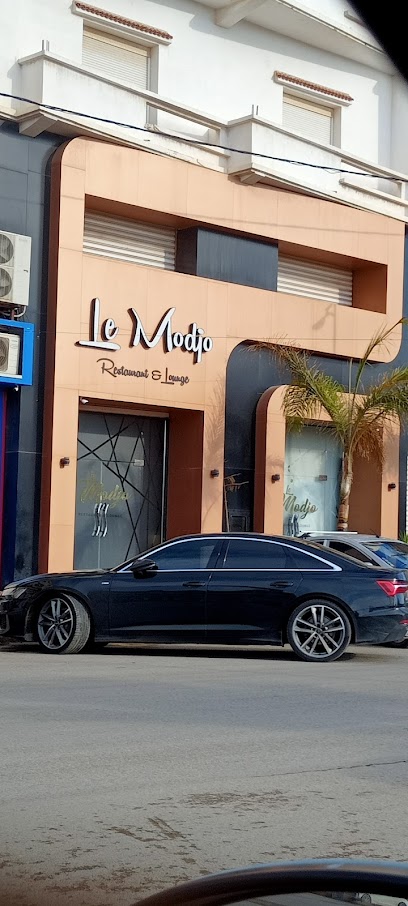
Sky Lounge By Liberté
Experience the vibrant nightlife and breathtaking views at Sky Lounge By Liberté, the premier rooftop destination in Oran, Algeria.
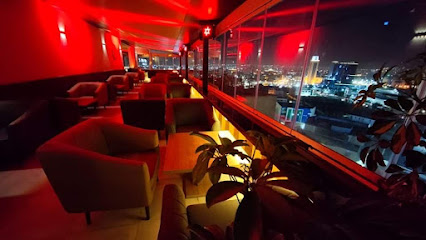
Penelope lounge
Experience culinary delights at Penelope Lounge, a charming restaurant in Oran offering authentic flavors and a warm ambiance for every visitor.
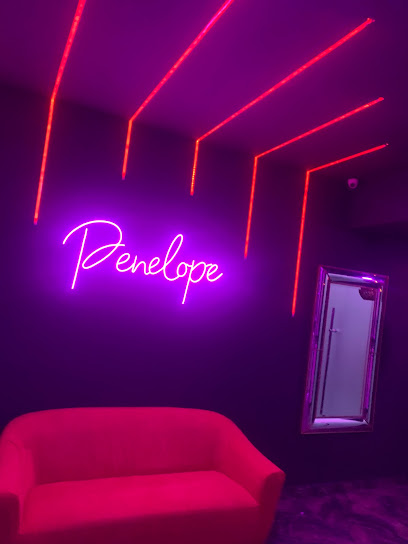
La Corrida
Discover the authentic flavors of Algeria at La Corrida, a must-visit restaurant in Oran for an unforgettable dining experience.
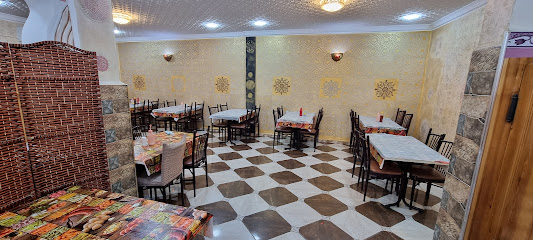
Infinity restaurant
Discover the flavors of Algeria at Infinity Restaurant in Oran, a culinary gem blending local and international cuisines.
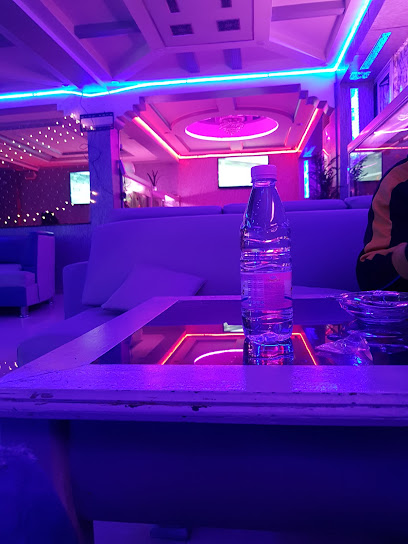
Restaurant El Djazair
Experience the rich flavors of Algeria at Restaurant El Djazair in Oran, where every dish tells a story of tradition and culture.
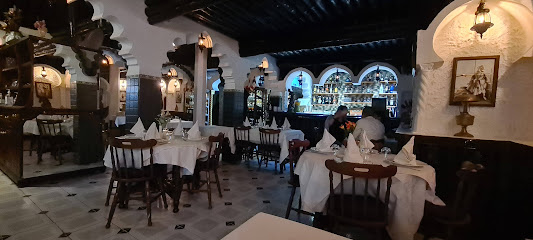
Local Phrases
-
- Helloسلام
[salam] - Goodbyeوداعا
[wadaan] - Yesنعم
[naam] - Noلا
[laa] - Please/You're welcomeمن فضلك
[min fadlik] - Thank youشكرا
[shokran] - Excuse me/Sorryعذرا
[aathiraa] - How are you?كيف حالك؟
[kayfa halak?] - Fine. And you?بخير. وأنت؟
[bikhayr. wa anta?] - Do you speak English?هل تتكلم الإنجليزية؟
[hal tatakallam al'injlizia?] - I don't understandلا أفهم
[la afham]
- Helloسلام
-
- I'd like to see the menu, pleaseأريد رؤية القائمة، من فضلك
[urid ru'ya alqaimah, min fadlik] - I don't eat meatأنا لا آكل اللحم
[ana la aakul allahm] - Cheers!في صحتك!
[fi sahtak!] - I would like to pay, pleaseأريد أن أدفع، من فضلك
[urid an adfa', min fadlik]
- I'd like to see the menu, pleaseأريد رؤية القائمة، من فضلك
-
- Help!النجدة!
[alnajdah!] - Go away!انصرف!
[inseraf!] - Call the Police!اتصل بالشرطة!
[atassil bialshurta!] - Call a doctor!اتصل بالطبيب!
[atassil bialtabib!] - I'm lostأنا ضائع
[ana dae'] - I'm illأنا مريض
[ana mareed]
- Help!النجدة!
-
- I'd like to buy...أريد أن أشتري...
[urid an ashtari...] - I'm just lookingأنا فقط أتطلع
[ana faqat atatalla] - How much is it?كم ثمنه؟
[kam thamanuh?] - That's too expensiveهذا غالي جدا
[hadha ghali jiddan] - Can you lower the price?هل يمكنك تخفيض السعر؟
[hal yumkinuk takhfid alsiar?]
- I'd like to buy...أريد أن أشتري...
-
- What time is it?كم الساعة؟
[kam alsaa'a?] - It's one o'clockالساعة الواحدة
[alsaa'ah alwahidah] - Half past (10)ونصف (عشرة)
[wansif (asharah)] - Morningصباح
[sabah] - Afternoonبعد الظهر
[ba'd aldhuhur] - Eveningمساء
[masa'] - Yesterdayأمس
[ams] - Todayاليوم
[alyawm] - Tomorrowغدا
[ghadan] - 1واحد
[wahid] - 2اثنان
[ithnan] - 3ثلاثة
[thalatha] - 4أربعة
[arba'a] - 5خمسة
[khamsa] - 6ستة
[sitta] - 7سبعة
[sab'a] - 8ثمانية
[thamania] - 9تسعة
[tis'ah] - 10عشرة
[asharah]
- What time is it?كم الساعة؟
-
- Where's a/the...?أين...؟
[ayn...?] - What's the address?ما هو العنوان؟
[ma huwa al'uan?] - Can you show me (on the map)?هل يمكنك أن تريني؟
[hal yumkinuk an tureeni?] - When's the next (bus)?متى القادم؟
[mata alqadim?] - A ticket (to ....)تذكرة (إلى...)
[tazkirah (ila...)]
- Where's a/the...?أين...؟
History of Oran
-
Oran was founded in 903 AD by Moorish Andalusi traders. The city's strategic location on the Mediterranean coast made it a crucial hub for trade and commerce during its early years, attracting a diverse mix of cultures and people.
-
In 1509, the Spanish Empire, led by Cardinal Francisco Jiménez de Cisneros, captured Oran from the Moors. The Spanish built several fortifications, including the Santa Cruz Fortress, to protect the city from Ottoman and pirate attacks.
-
In 1708, the Ottoman Empire seized Oran from the Spanish. The city became part of the Ottoman Regency of Algiers. However, the Spanish briefly recaptured Oran in 1732 before finally ceding it to the Ottomans in 1792 after a devastating earthquake.
-
In 1831, Oran fell under French control as part of the broader colonization of Algeria. The French period saw significant urban development, including the construction of new streets, buildings, and public amenities, which shaped the modern layout of the city.
-
During World War II, Oran was a key strategic location. In 1940, the British Royal Navy launched Operation Catapult, attacking the French fleet anchored in Oran to prevent it from falling into German hands. Later, in 1942, the city was a pivotal site during Operation Torch, the Allied invasion of North Africa.
-
Oran played a significant role in the Algerian War of Independence (1954-1962). The city witnessed numerous uprisings and violent confrontations between French forces and Algerian nationalists. The war culminated in Algeria gaining independence from France in 1962.
-
Post-independence, Oran has grown into a vibrant cultural and economic center. The city is known for its rich musical heritage, particularly Raï music, and hosts numerous festivals and cultural events. Its historic sites, bustling port, and diverse neighborhoods continue to attract visitors from around the world.
Oran Essentials
-
Oran is accessible via Ahmed Ben Bella Airport (ORN), which is approximately 12 km from the city center. International flights from several European and Middle Eastern cities land here. From the airport, you can take a taxi or a shuttle bus to the city. Alternatively, Oran is well-connected by train and bus services from major Algerian cities like Algiers and Constantine. The train journey from Algiers to Oran offers scenic views of the Mediterranean coast and typically takes around 4 to 5 hours.
-
Oran has a variety of transportation options. Taxis are widely available and relatively inexpensive; it's advisable to agree on a fare before starting your journey. The city also has a public bus network, but it can be crowded and less reliable. For a more immersive experience, consider walking through the central districts. Car rentals are available for those who wish to explore beyond the city limits. Remember to drive cautiously, as traffic can be hectic.
-
The official currency in Algeria is the Algerian Dinar (DZD). Credit cards are accepted in some hotels, restaurants, and major stores, but cash is preferred in smaller establishments and markets. ATMs are readily available throughout Oran, and it is advisable to carry some cash for small purchases and tips. Currency exchange services are available at the airport, major banks, and some hotels.
-
Oran is generally safe for tourists, but it is important to take standard precautions. Avoid walking alone at night in unfamiliar areas such as Sidi El Houari and the outskirts of the city. Petty crimes like pickpocketing can occur in crowded places, so keep an eye on your belongings. Stick to well-lit and populated areas, and avoid displaying valuable items.
-
In case of emergency, dial 14 for police assistance and 17 for medical emergencies. The University Hospital of Oran provides comprehensive medical services. Pharmacies are available throughout the city for minor health issues. It is advisable to have travel insurance that covers medical emergencies. Keep a copy of important documents such as your passport and travel insurance policy.
-
Fashion: Do dress modestly, especially when visiting religious sites; women should consider covering their shoulders and knees. Don't wear overly revealing clothing. Religion: Do respect local customs and traditions. Don't enter mosques during prayer times unless invited. Public Transport: Do be respectful and offer your seat to elderly passengers. Don't eat or drink on public transport. Greetings: Do greet people with a handshake; men should wait for women to extend their hand first. Don't use first names unless invited to do so. Eating & Drinking: Do try local dishes and accept food offerings graciously. Don't refuse hospitality, as it is considered impolite.
-
To experience Oran like a local, visit the bustling Souk El Had market where you can buy authentic Algerian products and spices. Spend an evening at the Place du 1er Novembre to enjoy local music and street performances. For a taste of local cuisine, try a brik or couscous at a traditional eatery. Don’t miss exploring the Santa Cruz Fortress for panoramic views of the city and the Mediterranean Sea. Engage with locals; they are often friendly and eager to share stories about their city.
Trending Landmark in Oran
-
Fort of Santa Cruz
-
Oran sea front
-
Dream paradise park Oran
-
Canastel Forest
-
Bey's Palace
-
Ahmed Zabana National Museum
-
Oran Arena
-
Abdullah Bin Salem Mosque
-
Pacha Mosque
-
Place du 1er Novembre
-
The Town Hall Place d'Armes
-
Port d'Oran
-
Cathedral of the Sacred Heart of Oran
-
Salle d'exposition des photos de martyrs de la révolution
-
Porte du Santon
Nearby Cities to Oran
-
Things To Do in Tlemcen
-
Things To Do in Oujda
-
Things To Do in Almeria
-
Things To Do in Murcia
-
Things To Do in Alicante
-
Things To Do in Algiers
-
Things To Do in Málaga
-
Things To Do in Valencia
-
Things To Do in Ronda
-
Things To Do in Chefchaouen
-
Things To Do in Gorham's Cave Complex
-
Things To Do in Catalan Bay
-
Things To Do in Europa Point
-
Things To Do in St. Michael's Cave
-
Things To Do in Tetouan

















